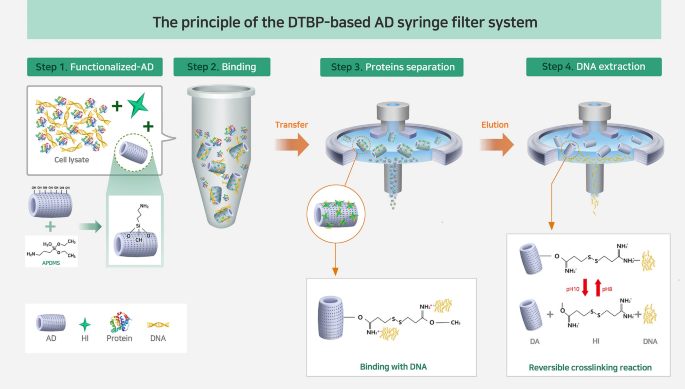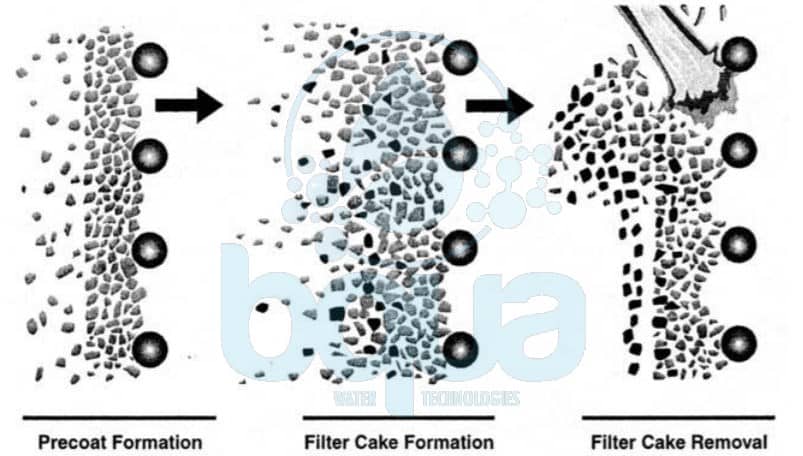Why Diatomaceous Earth Filtering Is the Preferred Choice for Many Water Systems
Why Diatomaceous Earth Filtering Is the Preferred Choice for Many Water Systems
Blog Article
Opening the Advantages of Diatomaceous Planet Filtering System for Tidy and pure Water
The exploration of diatomaceous planet (DE) filtering provides an engaging option for those seeking lasting and reliable water filtration techniques. As the demand for clean water continues to increase internationally, comprehending the diverse applications and benefits of DE filters might disclose critical understandings for both home and commercial usage.
What Is Diatomaceous Planet?
Diatomaceous earth, frequently referred to as DE, is a naturally occurring stratified rock made up largely of the fossilized remains of tiny, marine microorganisms called diatoms. These single-celled algae are rich in silica, which is the primary part of DE. The one-of-a-kind framework of diatomaceous planet contains tiny, porous fragments that give a high area, making it an efficient filtering medium.
DE is commonly harvested from old lake beds and deposits, which have accumulated over countless years. It looks like a fine, white to off-white powder, and its chemical structure largely consists of silicon dioxide, along with trace amounts of numerous minerals. This structure is what offers DE its amazing residential or commercial properties.
In addition to its application in water purification, diatomaceous earth is utilized in a variety of markets, consisting of farming, food storage space, and parasite control. Its capacity to absorb dampness and its abrasive qualities make it an important resource in these fields. Generally, diatomaceous earth attracts attention as an eco-friendly alternative for different applications because of its natural origin and performance in purification procedures.

Just How Diatomaceous Earth Filtering Works

When water goes through a diatomaceous earth filter, the fine fragments are captured in the elaborate network of tiny pores. The shapes and size of these pores are critical, as they are made to target specific impurities while allowing tidy water to flow via. As water steps via the filter tool, the mechanical action of the diatomaceous planet records larger particles, while smaller contaminants are taken in or physically blocked.
In addition, the area given by diatomaceous earth is substantial, enhancing its ability to hold contaminations. This causes a progressive buildup of entraped bits, which can be regularly gotten rid of via a backwashing process. This technique makes certain regular filtering performance and contributes to the total efficiency of preserving clean and pure water.
Benefits Over Typical Filtration
When comparing diatomaceous planet filtering to standard purification methods, numerous benefits emerge that enhance water purification effectiveness. One of the main advantages is the remarkable filtering ability of diatomaceous planet (DE), which can eliminate smaller bits and impurities that conventional filters may miss out on. The microscopic structure of DE allows it to catch contaminants, consisting of germs and protozoa, causing cleaner water.
Furthermore, diatomaceous earth filters have a tendency to have a much longer lifespan than conventional media, reducing the frequency of replacement and maintenance. This longevity not just lowers functional costs but likewise minimizes waste, adding to over at this website even more lasting practices. DE filters likewise operate at reduced pressure, which can lead to power cost savings in large-scale applications.
An additional significant advantage is the convenience of diatomaceous earth. It can be made use of successfully in various contexts, from local water therapy facilities to specialized industrial applications (diatomaceous earth filtering). The natural make-up of DE makes it an environment-friendly choice, devoid of damaging chemicals and contaminants usually related to artificial purification systems
Applications in Home and Sector
Countless applications of diatomaceous earth filtering system can be located in both house and industrial settings, highlighting its convenience and effectiveness in water purification. In household environments, diatomaceous earth (DE) filters are typically utilized in swimming pools, successfully capturing particles and microorganisms, thus keeping water quality and hygiene. Additionally, many houses use DE in home water filtering systems, where it offers to eliminate contaminations, sediment, and dangerous microorganisms, making certain safe drinking water.
In industrial applications, diatomaceous planet filtering is essential to different markets, including food and drink manufacturing, drugs, and wastewater therapy. In the food industry, DE is used in the filtration of beer and red wine, promoting the elimination of yeast and various other particulates while protecting the beverage's flavor profile. Additionally, in wastewater therapy facilities, DE filters play a crucial function in improving water quality by capturing impurities and assisting in the recycling of water sources.
The efficiency of diatomaceous earth in both household and industrial applications highlights its invaluable function in promoting tidy water access, contributing to public health, and sustaining lasting techniques.

Picking the Right DE Filter
Picking the appropriate diatomaceous earth (DE) filter is essential for guaranteeing optimum water filtration, whether for commercial or domestic use. diatomaceous earth filtering. The selection of a DE filter depends upon several essential factors, consisting of the particular application, flow rate requirements, and the desired degree of filtering
First, examine the quantity of water to be filteringed system. For household use, smaller sized filters are adequate, while commercial applications might demand larger, high-capacity systems. Next, consider the circulation price; it is crucial to pick a filter that can deal with the required throughput without compromising water high quality.
Additionally, examine the purification degree; DE filters can be found in different grades, influencing the removal of pollutants and particulates. Higher-grade filters are optimal for applications needing stringent pureness degrees.
Last but not least, take into consideration the maintenance needs and the accessibility from this source of replacement DE powder. Filters that are simpler to preserve and have easily available materials will lower downtime and functional expenses. By meticulously considering these elements, one can pick a DE filter that satisfies details demands, guaranteeing the delivery of risk-free and tidy water.
Verdict
In recap, diatomaceous earth filtering represents a substantial advancement in water filtration modern technology, offering improved performance and performance in capturing impurities. Its distinct permeable structure helps with superior filtering, while its environmentally friendly buildings add to sustainability. The durability and reduced operational stress of DE filters promote power cost savings, making them a viable option for numerous applications in both commercial and domestic setups. Embracing diatomaceous earth filtering system can cause improved public health end results and better accessibility to clean water.
The exploration of diatomaceous earth (DE) filtering system provides a compelling choice for those seeking sustainable and effective water filtration methods.When contrasting diatomaceous planet filtering system to conventional filtration methods, numerous benefits arise that enhance water purification effectiveness.Many applications of diatomaceous planet filtering system can be located in both family and industrial settings, highlighting its convenience and efficiency in water filtration. In property environments, diatomaceous earth (DE) filters are commonly utilized in swimming pools, efficiently catching particles and microorganisms, therefore maintaining water quality and health. In wastewater therapy centers, DE filters play an important duty in improving water high quality by trapping impurities and helping with the recycling Recommended Reading of water sources.
Report this page